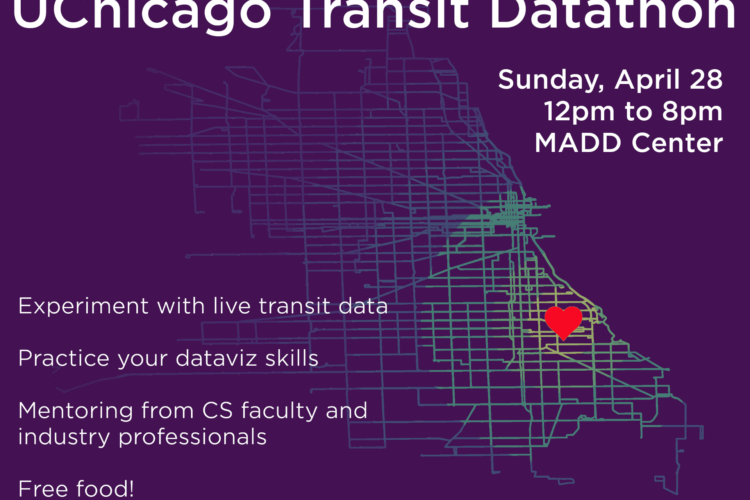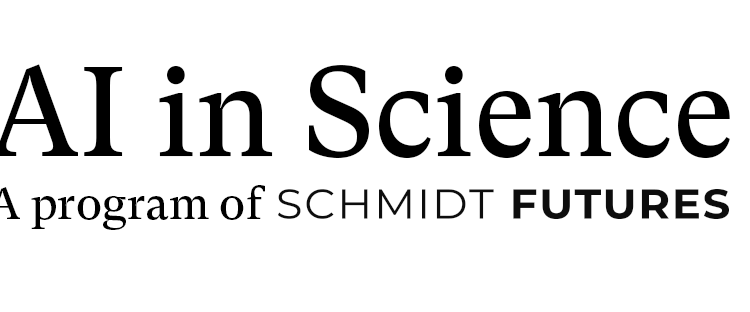Ben Shneiderman (Maryland) – Human-Centered AI: Ensuring Human Control While Increasing the Level of Automation
This talk will take place in person at Crerar 390 and online via Zoom. Please register to receive remote viewing instructions.
A new synthesis is emerging that integrates AI technologies with Human-Computer Interaction to produce Human-Centered AI (HCAI). Advocates of this new synthesis seek to amplify, augment, and enhance human abilities, so as to empower people, build their self-efficacy, support creativity, recognize responsibility, and promote social connections.
Researchers, developers, business leaders, policy makers and others are expanding the technology-centered scope of Artificial Intelligence (AI) to include Human-Centered AI (HCAI) ways of thinking. This expansion from an algorithm-focused view to embrace a human-centered perspective, can shape the future of technology so as to better serve human needs. Educators, designers, software engineers, product managers, evaluators, and government agency staffers can build on AI-driven technologies to design products and services that make life better for the users. These human-centered products and services will enable people to better care for each other, build sustainable communities, and restore the environment. The passionate advocates of HCAI are devoted to furthering human values, rights, justice, and dignity, by building reliable, safe, and trustworthy systems.
The talk will include examples, references to further work, and discussion time for questions. These ideas are drawn from Ben Shneiderman’s new book Human-Centered AI (Oxford University Press, 2022). Further information at: https://hcil.umd.edu/human-centered-ai
 Bio: Ben Shneiderman is an Emeritus Distinguished University Professor in the Department of Computer Science, Founding Director (1983-2000) of the Human-Computer Interaction Laboratory, and a Member of the UM Institute for Advanced Computer Studies (UMIACS) at the University of Maryland. He is a Fellow of the AAAS, ACM, IEEE, NAI, and the Visualization Academy and a Member of the U.S. National Academy of Engineering. He has received six honorary doctorates in recognition of his pioneering contributions to human-computer interaction and information visualization. His widely-used contributions include the clickable highlighted web-links, high-precision touchscreen keyboards for mobile devices, and tagging for photos. Shneiderman’s information visualization innovations include dynamic query sliders for Spotfire, development of treemaps for viewing hierarchical data, novel network visualizations for NodeXL, and event sequence analysis for electronic health records.
Bio: Ben Shneiderman is an Emeritus Distinguished University Professor in the Department of Computer Science, Founding Director (1983-2000) of the Human-Computer Interaction Laboratory, and a Member of the UM Institute for Advanced Computer Studies (UMIACS) at the University of Maryland. He is a Fellow of the AAAS, ACM, IEEE, NAI, and the Visualization Academy and a Member of the U.S. National Academy of Engineering. He has received six honorary doctorates in recognition of his pioneering contributions to human-computer interaction and information visualization. His widely-used contributions include the clickable highlighted web-links, high-precision touchscreen keyboards for mobile devices, and tagging for photos. Shneiderman’s information visualization innovations include dynamic query sliders for Spotfire, development of treemaps for viewing hierarchical data, novel network visualizations for NodeXL, and event sequence analysis for electronic health records.
Ben is the lead author of Designing the User Interface: Strategies for Effective Human-Computer Interaction (6th ed., 2016). He co-authored Readings in Information Visualization: Using Vision to Think (1999) and Analyzing Social Media Networks with NodeXL (2nd edition, 2019). His book Leonardo’s Laptop (MIT Press) won the IEEE book award for Distinguished Literary Contribution. The New ABCs of Research: Achieving Breakthrough Collaborations (Oxford, 2016) describes how research can produce higher impacts. His new book on Human-Centered AI, was published by Oxford University Press in Spring 2022.

PalmWatch How-To: Learn how you can use PalmWatch in your research or reporting

First Annual UChicago Transit Datathon

Navigating the Data Science Job Market: Insights and Opportunities
